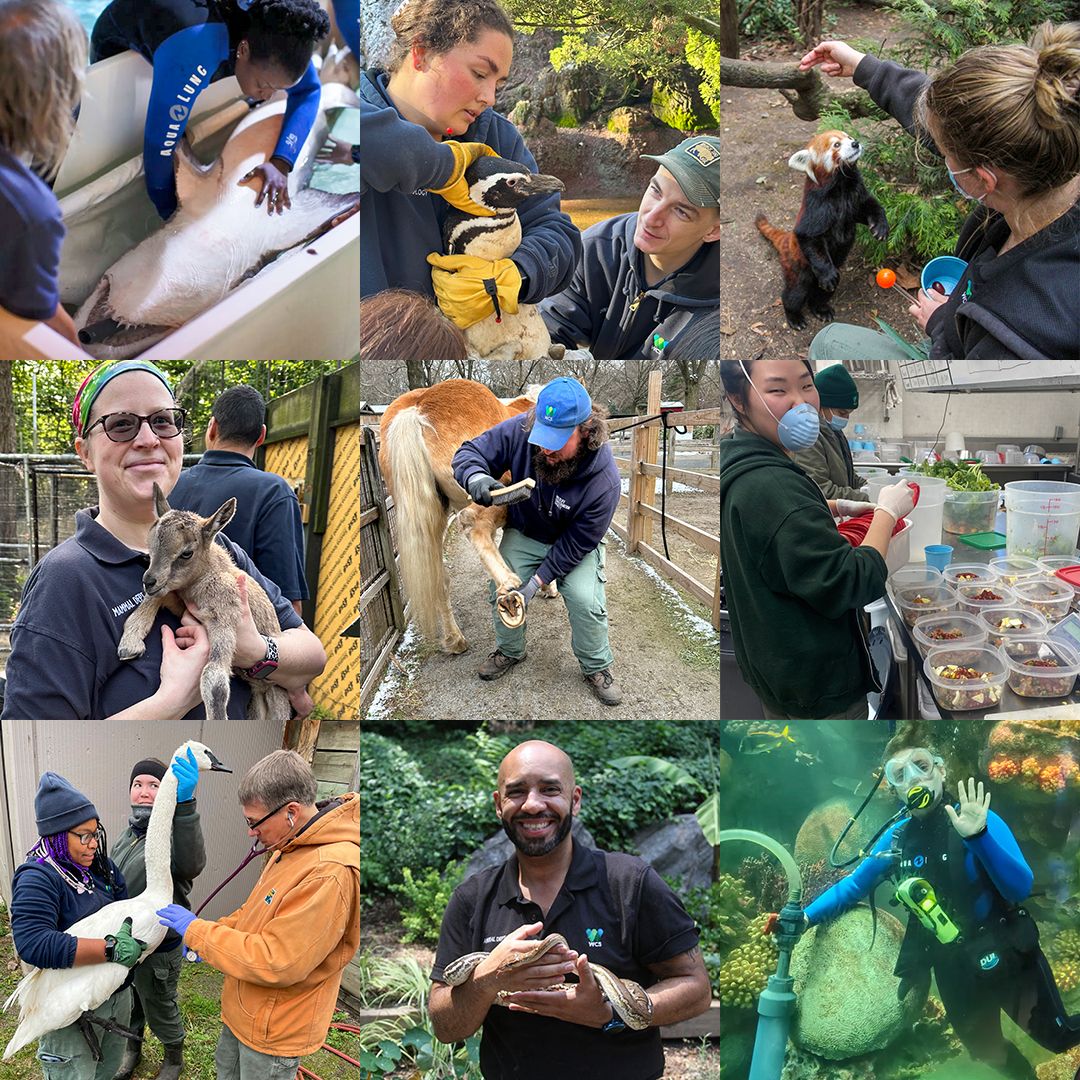What does a zookeeper do? Pretty much everything!
Summary:
– The role of a zookeeper encompasses a wide range of tasks and responsibilities.
– Zookeepers require knowledge, skill, creativity, dedication, and problem-solving abilities.
– A typical day for a zookeeper involves cleaning, food preparation, feeding, training, enrichment, guest engagement, and education.
– Many zookeepers start their careers as volunteers or interns at their local zoo or aquarium.
– If you want to become a zookeeper, various internships are available at renowned zoos and aquariums.
Have you ever wondered what it takes to be a zookeeper? Well, let me tell you, it’s much more than just cuddling cute animals all day. Working with animals requires unique skills and a deep passion for nature and wildlife. Zookeeping is both an art and a science, and it involves a wide range of tasks and responsibilities that keep the animal kingdom thriving.
A typical day in the life of a zookeeper is far from monotonous. It’s a whirlwind activity requiring knowledge, skill, creativity, dedication, and problem-solving abilities. Let’s dive into the fascinating zookeeping world and uncover the secrets behind this incredible profession.
First and foremost, cleanliness is key. Most zookeepers’ day involves cleaning enclosures, exhibits, and animal areas. Maintaining a clean and sanitary environment is vital for the health and well-being of the animals. This includes removing waste, sanitizing surfaces, and ensuring the habitats are free from potential hazards.
Food preparation and feeding is another crucial aspect of a zookeeper’s role. Animals have specific dietary requirements, and ensuring they receive the right nutrition is essential. Zookeepers meticulously prepare meals tailored to each animal’s needs, considering age, species, and medical conditions. They may also need to administer medication or supplements to ensure the animals stay healthy.
But zookeeping isn’t just about cleaning and feeding. Training plays a vital role in animal care. Zookeepers work with the animals, build trust, and teach them essential behaviors. Training helps with daily care and veterinary procedures and enables animals to participate in enrichment activities. It allows them to engage in natural behaviors, stimulates their minds, and keeps them physically active.
Speaking of enrichment, zookeepers are masters at providing activities and stimuli that keep animals mentally engaged. This involves creating puzzles, hiding food, introducing new objects, or playing specific sounds to mimic their natural environment. Enrichment promotes species-specific behaviors, prevents boredom, and enhances the animals’ well-being. It’s all about providing them a fulfilling and stimulating life, even in captivity.
Zookeepers are not just caretakers; they also act as ambassadors for wildlife conservation. Education and guest engagement are essential components of their role. They interact with visitors, answering questions, sharing interesting facts, and raising awareness about conservation efforts. They inspire the next generation of animal lovers and conservationists, sparking curiosity and igniting a passion for the natural world.
Becoming a zookeeper requires dedication and commitment. Many animal care professionals have earned bachelor’s degrees or higher in biology, zoology, or animal behavior. However, it’s not just about formal education. Many successful zookeepers began their journey as volunteers or interns at their local zoo or aquarium. This hands-on experience provides invaluable insights and opportunities to work closely with experienced professionals.
If you’re considering a career as a zookeeper, numerous internships are available at renowned zoos and aquariums. For example, the Bronx Zoo, Central Park Zoo, Queens Zoo, Prospect Park Zoo, and New York Aquarium offer internships that provide a comprehensive learning experience. These internships allow individuals to gain practical skills, observe animal behaviors, and understand the intricacies of zookeeping.
You can visit the American Association of Zoo Keepers website to learn more about internships and resources for aspiring zookeepers. They provide valuable information and guidance, helping individuals kickstart their journey into the world of animal care.
In conclusion, being a zookeeper is a fulfilling and multifaceted profession. It combines elements of science, creativity, and compassion to ensure the well-being of the animal residents. Zookeepers do everything from cleaning enclosures to training, enrichment, and education. So, if you have a passion for animals, a thirst for knowledge, and a desire to make a difference, consider exploring the incredible world of zookeeping. You may find yourself immersed in an adventure you never thought possible!
*****
Source Description
What does a zookeeper do? Pretty much everything!
Working with animals requires knowledge, skill, creativity, dedication and complex problem-solving, so zookeeping is an art and a science combined! A keeper’s day can include cleaning, food preparation and feeding, training, enrichment, guest engagement and education, and much more. Most animal care professionals have bachelor’s degrees or higher, and many began their awesome STEM careers as volunteers or interns at their local zoo or aquarium.
If you’re interested in becoming a zookeeper, you can learn more about the internships available at the Bronx Zoo, Central Park Zoo, Queens Zoo, Prospect Park Zoo, and New York Aquarium at the link in our profile. Visit the American Association of Zoo Keepers website for more information and resources.

